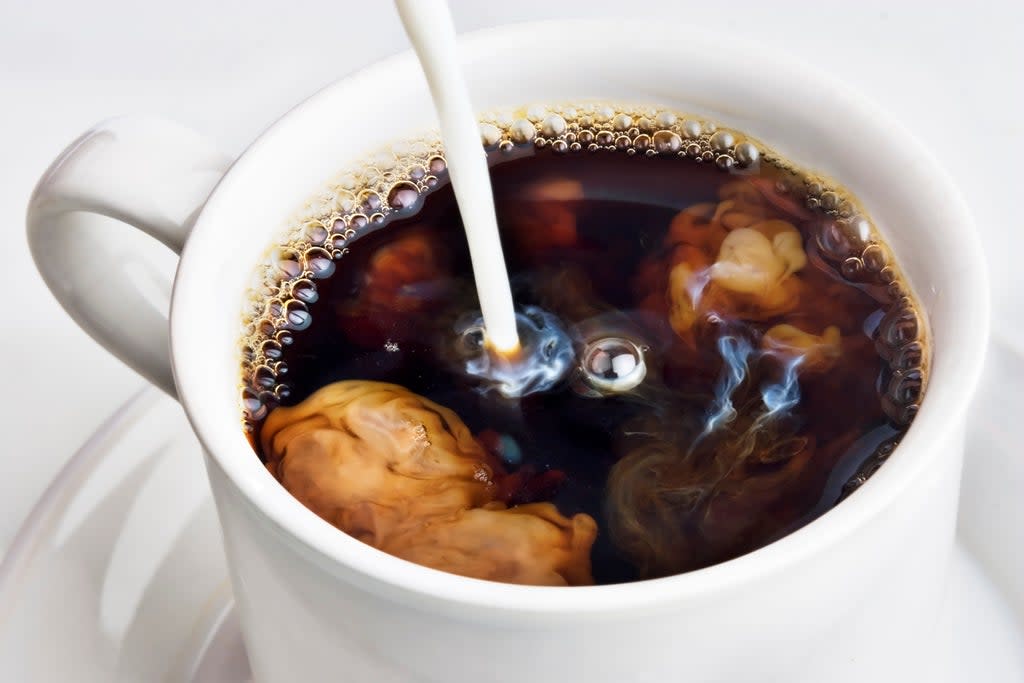Magazine article claiming whole milk has made its ‘triumphant comeback’ with ‘hot girls’ sparks division

An article declaring whole milk’s “triumphant comeback” has divided readers, with some agreeing with the pronouncement while others have denounced the claim.
In an article for New York Magazine’s food and restaurant blog Grub Street, titled: “Whole Milk Mounts its Triumphant Comeback: ‘Hot girls are ditching the alternatives and are going back to basics,’” writer Emily Sundberg reflects on her experience drinking whole milk while vacationing in Europe, rather than dairy-free alternatives, before sharing proof to back up her belief that cow’s milk is making a comeback.
According to Sundberg, who first began by listing the various alternatives to milk that have popped up over the years, when she found herself travelling without worrying about dairy-free alternatives, she felt that she was “in a simpler, more sensible world”.
“I was in a simpler, more sensible world, one without an alt mylk or nondairy creamer in sight. The real international delight, I realised, is pouring whole, full-dairy milk into your coffee; it is perhaps the most civilised activity in which a person can partake,” Sundberg wrote.
Sundberg then revealed that, since her revelation, she has spoken to others who have come to similar conclusions, or who have witnessed a return to whole milk.
One such individual, a New York City waitress named Meetka, told Sundberg that she has found herself receiving less orders for oat milk and more for whole milk over the last two months - a phenomenon she suspects may be due to the bad press surrounding alternatives such as almond, which was reported to be bad for the environment.
Another individual, Caroline Hesse, a manager and cheese authority at Crown Finish Caves in Brooklyn, told Sundberg that the change was likely due to the realisation that “the case against dairy ignores many of the complexities of our food system”.
According to Hesse, she has heard of multiple people returning to cow’s milk or other dairy products, and by doing so, setting off a “domino effect”.
“After such a long time of nobody even considering milk, there is now something taboo and enticing about keeping it in your fridge,” she said.
Ultimately, Sundberg suggested that a return to whole milk is “an antidote to languishing, or at least a way to remember that we can all do a little less and we’ll be fine”.
She concluded the article with a quote from Hesse, who described how, once people see a friend drink cow’s milk again and nothing bad happens, it is easy for them to become convinced that dairy is “fine - and even good”.
“And once people try it themselves, they realise how hungry they’ve been this entire time,” Hesse told Sundberg.
After years of being told alt-milks are a path to culinary nirvana, people are returning to whole milk. @Emily_Sundberg reports https://t.co/MDCWOAtXP1
— New York Magazine (@NYMag) August 23, 2021
On social media, the article has prompted a range of responses, with some agreeing with the assessment while others have criticised Sundberg’s point.
“Don’t call it a comeback, we’ve been here for years,” one person tweeted, while another said: “Never could understand the hate towards whole milk.”
I KNEW it! https://t.co/LvvgoPUnbm
— Hart Hanson (@HartHanson) August 23, 2021
However, many others have critiqued the article on the basis that access to alternative milks is beneficial for those who are lactose intolerant or who have dairy allergies.
“Two-thirds of the adults on this planet can’t digest dairy milk but sure,” one reader tweeted.
Another said: “Babe I can’t digest dairy.”
Babe I can't digest dairy https://t.co/fbgJW9PTFU
— Belle Chanson, Lipstick Witch, MLS (@ekp0717) August 23, 2021
The article also raised the question of sustainability, with some pointing out that most alternatives have less of an environmental impact than dairy milk.
did…big milk pay for this? https://t.co/1bBaTI2vSe
— Man Bartlett (@man) August 23, 2021
“I cook with whole milk but for daily consumption I go with oat milk. It’s not even really nutritional, it’s environmental, the same reason I’ve decreased my red meat intake,” one person wrote.
According to Statista, to produce a litre of cow’s milk in 2018, it required 628 litres of water, while almond milk required 371 litres. Oat milk and soy milk required 48 litres and 28 litres, respectively.
Others were simply against the idea that whole milk is superior, with someone else tweeting: “You can try and pry my unsweetened vanilla almond milk out of my hands, but you will fail.”
Read More
Katie Ledecky’s training included swimming with a glass of chocolate milk on her head
From soy to oat, plant-based milks are more popular than ever in Britain
Are milk alternatives like soy and almond really better than cow's milk?
Will OnlyFans survive its shift away from sexually-explicit content?
Should you brush your teeth before or after breakfast? A dental therapist’s answer has gone viral


